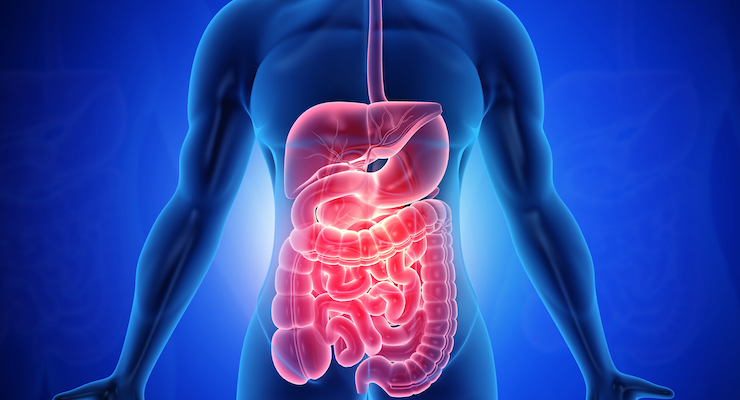Market Updates, Research
Glucosamine Demonstrates Possible Gut Health Benefits
A double-blind study concluded that glucosamine supplementation led to reductions in stomach bloating and other digestive issues.

By: Mike Montemarano

Glucosamine, an amino sugar found naturally in cartilage prominently featured in joint health supplements, was shown in a recent clinical trial to exhibit gastrointestinal health benefits. As an ingredient which has poor absorption in the gut, researchers posited that glucosamine could exhibit beneficial properties in the digestive tract.
In the study, the researchers recruited 11 participants who were monitored for changes to fecal microbiota and metabolome during two supplementation protocols, each of which spanned three weeks and were separated by a washout period. The participants were assigned respectively to either a supplementation group, which was administered a daily dose of 3,000 mg of GlucosaGreen, a glucosamine supplement manufactured by TSI Group, Ltd., or a maltodextrin placebo group, followed by a crossover.
The authors of the study noted that glucosamine supplementation was associated with reductions in stomach bloating, and showed a trend toward reducing constipation and hard stools. Furthermore, analysis revealed that supplementation was linked to increased gut microbiota diversity, with reductions in the strains Pseudomonadaceae, Peptococcaceae, and Bacillaceae. Closely linked to this was a significant reduction in individual, total branched-chain, and total amino acid excretion, with no glucosamine being detected in any of the fecal samples, which were considered functionally beneficial for gut health.
It could be inferred from the results of the GI study that glucosamine’s anti-inflammatory properties could, possibly in part, be due to changes the compound induces in the gut microbiota, the authors of the study said.
“Lower BCAA, total amino acids, and glutamate could indicate increased absorption of these nutrients, increased utilization by microbes, or decreased production, assuming that some of the amino acids come directly from gut bacteria. Additionally, reduced nitrogen excretion could indicate reduced muscle protein breakdown, potentially due to reduced inflammation. Gut microbiota-derived metabolites affect many biological processes of the host, including appetite control and weight management,” the authors of the study said.
The authors of the study concluded that non-shellfish derived glucosamine supplementation could be a potential nutritional intervention to improve functional outcomes related to digestive health – changes to bacterial diversity in fecal contents could also reveal other gut-related health benefits, such as enhanced nutrient absorption, they said.


